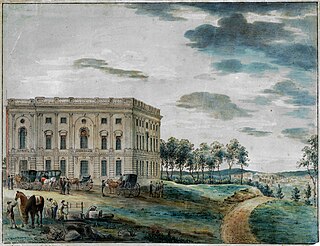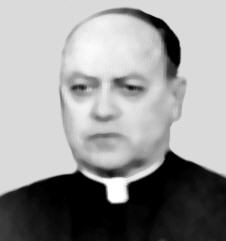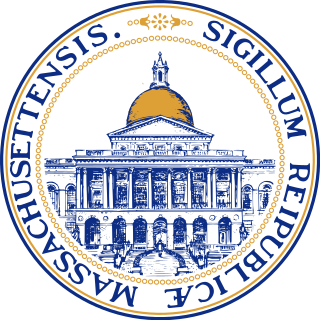Related Research Articles

The 7th United States Congress was a meeting of the legislative branch of the United States federal government, consisting of the United States Senate and the United States House of Representatives. It met in Washington, D.C. from March 4, 1801, to March 4, 1803, during the first two years of Thomas Jefferson's presidency. The apportionment of seats in the House of Representatives was based on the 1790 United States census. Both chambers had a Democratic-Republican majority, except during the Special session of the Senate, when there was a Federalist majority in the Senate.

The 9th United States Congress was a meeting of the legislative branch of the United States federal government, consisting of the United States Senate and the United States House of Representatives. It met in Washington, D.C. from March 4, 1805, to March 4, 1807, during the fifth and sixth years of Thomas Jefferson's presidency. The apportionment of seats in the House of Representatives was based on the 1800 United States census. Both chambers had a Democratic-Republican majority.

The 10th United States Congress was a meeting of the legislative branch of the United States federal government, consisting of the Senate and the House of Representatives. It met in Washington, D.C. from March 4, 1807, to March 4, 1809, during the seventh and eighth years of Thomas Jefferson's presidency. The apportionment of seats in the House of Representatives was based on the 1800 census; both chambers had an overwhelming Democratic-Republican majority.

The 11th United States Congress was a meeting of the legislative branch of the United States federal government, consisting of the United States Senate and the United States House of Representatives. It met in Washington, D.C. from March 4, 1809, to March 4, 1811, during the first two years of James Madison's presidency. The apportionment of seats in the House of Representatives was based on the 1800 United States census. Both chambers had a Democratic-Republican majority.

The 26th United States Congress was a meeting of the legislative branch of the United States federal government, consisting of the United States Senate and the United States House of Representatives. It met in Washington, D.C. from March 4, 1839, to March 4, 1841, during the third and fourth years of Martin Van Buren's presidency. The apportionment of seats in the House of Representatives was based on the 1830 United States census. Both chambers had a Democratic majority.

Joseph Taylor Robinson, also known as Joe T. Robinson, was an American politician from Arkansas. A member of the Democratic Party, he represented Arkansas in the United States Senate from 1913 to 1937, serving for four years as Senate Majority Leader and ten as Minority Leader. He previously served as the state's 23rd governor, and was also the Democratic vice presidential nominee in the 1928 presidential election.

The California State Assembly is the lower house of the California State Legislature, the upper house being the California State Senate. The Assembly convenes, along with the State Senate, at the California State Capitol in Sacramento.

The 71st United States Congress was a meeting of the legislature of the United States federal government, consisting of the United States Senate and the United States House of Representatives. It met in Washington, D.C. from March 4, 1929, to March 4, 1931, during the first two years of Herbert Hoover's presidency. The apportionment of seats in the House of Representatives was based on the 1910 United States census.
Gallaher Group was a United Kingdom-based multinational tobacco company which traded on the London Stock Exchange and was a constituent of the FTSE 100 Index, prior to its acquisition by Japan Tobacco in April 2007. Japan Tobacco trades in the United Kingdom as Gallaher Ltd.
James Gallagher may refer to:

David Gallaher was an Irish-born New Zealand rugby union footballer best remembered as the captain of the "Original All Blacks"—the 1905–06 New Zealand national team, the first representative New Zealand side to tour the British Isles. Under Gallaher's leadership the Originals won 34 out of 35 matches over the course of tour, including legs in France and North America; the New Zealanders scored 976 points and conceded only 59. Before returning home he co-wrote the classic rugby text The Complete Rugby Footballer with his vice-captain Billy Stead. Gallaher retired as a player after the 1905–06 tour and took up coaching and selecting; he was a selector for both Auckland and New Zealand for most of the following decade.
Ralph Isaacs Ingersoll was a lawyer, politician, and diplomat who served as a member of the Connecticut House of Representatives, where he was Speaker of the House, a United States representative from Connecticut for four consecutive terms from 1825 to 1833, and was the U.S. Minister to the Russian Empire under President James K. Polk in the late 1840s.

The 2000 United States Senate election in West Virginia took place on November 7, 2000. Incumbent Democratic U.S. Senator Robert Byrd won re-election to an eighth term. He won every county and congressional district in the state with at least 60% of the vote. This was despite the fact that Republican presidential candidate George W. Bush won the state for President on the same ballot.
Reuben Post was a Presbyterian clergyman who served two separate terms as Chaplain of the United States House of Representatives and also served as Chaplain of the Senate of the United States (1819).

The chaplain of the United States House of Representatives is the officer of the United States House of Representatives responsible for beginning each day's proceedings with a prayer. The House cites the first half of Article 1, Section 2, Clause 5 in the United States Constitution as giving it the authority to elect a chaplain, "The House of Representatives shall choose their speaker and other officers".

The chaplain of the United States Senate opens each session of the United States Senate with a prayer, and provides and coordinates religious programs and pastoral care support for senators, their staffs, and their families. The chaplain is appointed by a majority vote of the members of the Senate on a resolution nominating an individual for the position. The three most recent nominations have been submitted based on a bipartisan search committee although that procedure is not required.

Bernard Braskamp was a Presbyterian minister who served as the 56th Chaplain of the United States House of Representatives, from 1950 until his death in 1966.

Charles Brandon Boynton (1806–1883) was the first president of Howard University and also served as chaplain of the United States House of Representatives.

The Congressional Prayer Room near the rotunda in the United States Capitol is a place set aside for the use of members of Congress who seek a quiet place for meditation or prayer. The space is not open to tour groups or visitors to the Capitol.

The 61st Massachusetts General Court, consisting of the Massachusetts Senate and the Massachusetts House of Representatives, met in 1840 during the governorship of Marcus Morton. Daniel P. King served as president of the Senate and Robert Charles Winthrop served as speaker of the House.
References
- ↑ "GALLAHER, James - US House of Representatives: History, Art & Archives". history.house.gov.
- ↑ "History of the Chaplaincy". chaplain.house.gov.
